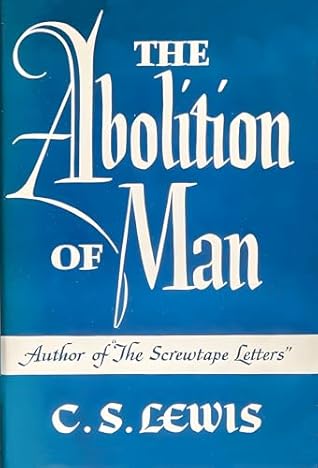More on this book
Community
Kindle Notes & Highlights
For every one pupil who needs to be guarded from a weak excess or sensibility there are three who need to be awakened from
the slumber of cold vulgarity. The task of the modern educator is not to cut down jungles but to irrigate deserts.
Aristotle says that the aim of education is to make the pupil like and dislike what he ought.12
Their heads are no bigger than the ordinary: it is the atrophy of the chest beneath that makes them seem so.
We make men without chests and expect of them virtue and enterprise. We laugh at honour and are shocked to find traitors in our midst. We castrate and bid the geldings be fruitful.
An open mind, in questions that are not ultimate, is useful. But an open mind about the ultimate foundations either of Theoretical or of Practical Reason is idiocy.
The direct frontal attack ‘Why?’—‘What good does it do?’—‘Who said so?’ is never permissible; not because it is harsh or offensive but because no values at all can justify themselves on that level. If you persist in that kind of trial you will destroy all values, and so destroy the bases of your own criticism as well as the thing criticized.
Each generation exercises power over its successors: and each, in so far as it modifies the environment bequeathed to it and rebels against tradition, resists and limits the power of its predecessors.
Whatever Tao there is will be the product, not the motive, of education.
Man’s final conquest has proved to be the abolition of Man.
My point is that those who stand outside all judgements of value cannot have any ground for preferring one of their own impulses to another except the emotional strength of that impulse.
Their extreme rationalism, by ‘seeing through’ all ‘rational’ motives, leaves them creatures of wholly irrational behaviour.
Man’s conquest of Nature turns out, in the moment of its consummation, to be Nature’s conquest of Man.
It is not the greatest of modern scientists who feel most sure that the object, stripped of its qualitative properties and reduced to mere quantity, is wholly real. Little scientists, and little unscientific followers of science, may think so. The great minds know very well that the object, so treated, is an artificial abstraction, that something of its reality has been lost.
To ‘see through’ all things is the same as not to see.


